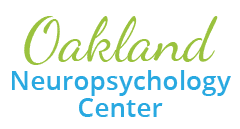Neuropsychological Testing for Anxiety and Depression in Adults
Understanding What You’re Going Through
It’s completely normal to feel sad, anxious, or overwhelmed from time to time. But if these feelings persist, interfere with your daily life, or feel unmanageable, you may be dealing with a mood or anxiety disorder. You’re not alone—and you’re not imagining it.
Mood and anxiety disorders are medical conditions that affect how you think, feel, and function. They often run in families and are linked to imbalances in the brain’s chemical messengers. Major life events like divorce, job stress, or the loss of a loved one can trigger or worsen symptoms, especially in people who are already vulnerable.
Common Mood and Anxiety Disorders
Some of the most commonly diagnosed mood disorders include:
- Major Depressive Disorder (Clinical Depression): Persistent sadness, loss of interest in activities, low energy, and difficulty concentrating.
- Bipolar Disorder (Manic-Depressive Illness): Cycles of depression and periods of elevated mood or irritability.
- Dysthymic Disorder (Persistent Depressive Disorder): Chronic, low-grade depression lasting two years or more.
Common anxiety disorders include:
- Generalized Anxiety Disorder (GAD): Excessive worry about everyday things.
- Obsessive-Compulsive Disorder (OCD): Repetitive thoughts or behaviors that feel hard to control.
- Panic Disorder: Sudden, intense episodes of fear or physical symptoms like chest pain or dizziness.
- Social Anxiety Disorder or Agoraphobia: Fear of social situations or leaving safe spaces.
- Post-Traumatic Stress Disorder (PTSD): Ongoing distress after a traumatic event.
How a Neuropsychological Evaluation Can Help
If you’re struggling with your mood, thoughts, or ability to function, a neuropsychological evaluation can offer clarity and direction. This comprehensive assessment goes beyond diagnosis—it’s designed to help you understand how your brain is working, what challenges you’re facing, and what strengths you can build on. It also helps differentiate between conditions that may look the same (ex. social anxiety and autism spectrum disorder) but have different symptoms and treatments.
With testing, you can:
- Identify the underlying reason for your symptoms
- Gain insight into how anxiety or depression affects your thinking, memory, and behavior
- Receive a tailored treatment and intervention plan to take to your primary care physician, therapist, and/or psychiatrist
- Feel more confident advocating for yourself at work, in relationships, or with healthcare providers
Take the First Step Toward Relief
You don’t have to keep struggling in silence. A neuropsychological evaluation is not just about getting a label—it’s about understanding yourself better and taking back control of your life. Many adults find that just beginning the testing process gives them a sense of hope and momentum. Contact us to schedule a confidential consultation or learn more about how testing can help you move forward with confidence.
If you have questions about our services or like to schedule a consultation with one of our neuropsychologists, please call (248) 644-9466 or email us through the form on our contact page.


